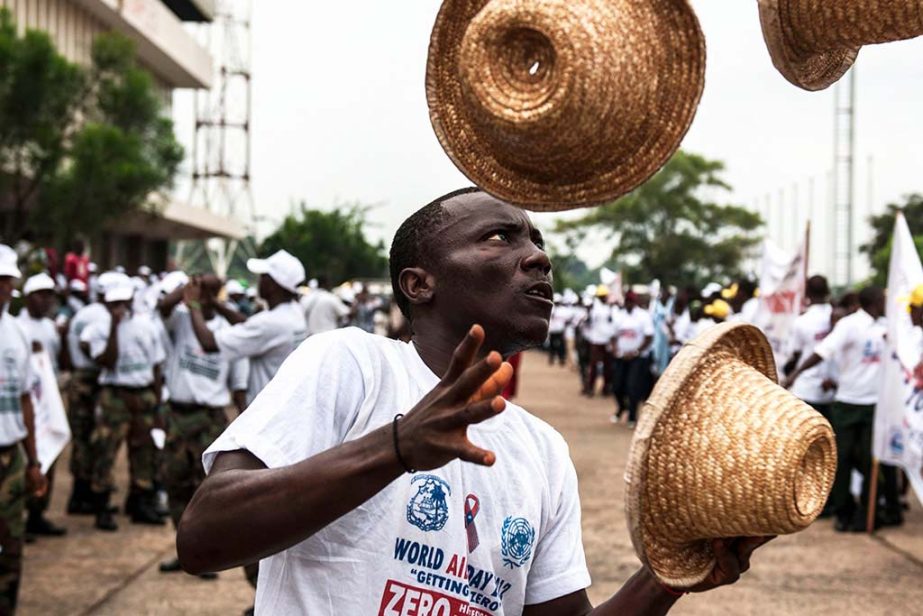
Life Desk :
According to UNAIDS, people living with disabilities are nearly three times more likely to be denied health-care than other people. (Source: Thinkstock Images) According to UNAIDS, people living with disabilities are nearly three times more likely to be denied health-care than other people. (Source: Thinkstock Images)
The Joint UN Programme on HIV/AIDS (UNAIDS) on Wednesday marked Zero Discrimination Day with a “Make Some Noise” campaign, urging people to speak up against discrimination.
“Discrimination takes many forms, and can be based on race, religion, gender, sexual orientation, or age,” Xinhua news agency quoted UN spokesman Stephane Dujarric as saying.
“For this year’s campaign, UNAIDS is putting particular focus on the need for zero discrimination in health-care settings,” Dujarric added.
According to UNAIDS, people living with disabilities are nearly three times more likely to be denied health-care than other people.
“Healthcare settings should be safe and supportive environments. It is unacceptable that discrimination is inhibiting access to care today,” said Michel Sidibe, Executive Director of the UNAIDS, in his message for Zero Discrimination Day.
Each year on March 1, the world marks Zero Discrimination Day “to highlight how everyone can be part of the transformation and take a stand for a fair and just society,” the UN agency said in a press release.
“Eliminating discrimination in health-care settings is critical, and we must demand that it become a reality,” Sidibe added.
The right to health is a fundamental human right that includes access to affordable, timely and quality health-care services for all, yet discrimination remains widespread in health-care settings, creating a serious barrier to access to HIV services.
Data from 50 countries from the People Living with HIV Stigma Index cited by UNAIDS show that one in eight people living with HIV report being denied health care.
Around 60 per cent of European Union/European Economic Area countries report that stigma and discrimination among health-care professionals remains a barrier to the provision of adequate HIV prevention services for men who have sex with men and people who inject drugs.
“Everyone has the right to be treated with respect, to live free from discrimination, coercion and abuse,” said Sidibe.
“Discrimination doesn’t just hurt individuals it hurts everyone, whereas welcoming and embracing diversity in all its forms brings benefits for all,” Sidibe added. -IANS
According to UNAIDS, people living with disabilities are nearly three times more likely to be denied health-care than other people. (Source: Thinkstock Images) According to UNAIDS, people living with disabilities are nearly three times more likely to be denied health-care than other people. (Source: Thinkstock Images)
The Joint UN Programme on HIV/AIDS (UNAIDS) on Wednesday marked Zero Discrimination Day with a “Make Some Noise” campaign, urging people to speak up against discrimination.
“Discrimination takes many forms, and can be based on race, religion, gender, sexual orientation, or age,” Xinhua news agency quoted UN spokesman Stephane Dujarric as saying.
“For this year’s campaign, UNAIDS is putting particular focus on the need for zero discrimination in health-care settings,” Dujarric added.
According to UNAIDS, people living with disabilities are nearly three times more likely to be denied health-care than other people.
“Healthcare settings should be safe and supportive environments. It is unacceptable that discrimination is inhibiting access to care today,” said Michel Sidibe, Executive Director of the UNAIDS, in his message for Zero Discrimination Day.
Each year on March 1, the world marks Zero Discrimination Day “to highlight how everyone can be part of the transformation and take a stand for a fair and just society,” the UN agency said in a press release.
“Eliminating discrimination in health-care settings is critical, and we must demand that it become a reality,” Sidibe added.
The right to health is a fundamental human right that includes access to affordable, timely and quality health-care services for all, yet discrimination remains widespread in health-care settings, creating a serious barrier to access to HIV services.
Data from 50 countries from the People Living with HIV Stigma Index cited by UNAIDS show that one in eight people living with HIV report being denied health care.
Around 60 per cent of European Union/European Economic Area countries report that stigma and discrimination among health-care professionals remains a barrier to the provision of adequate HIV prevention services for men who have sex with men and people who inject drugs.
“Everyone has the right to be treated with respect, to live free from discrimination, coercion and abuse,” said Sidibe.
“Discrimination doesn’t just hurt individuals it hurts everyone, whereas welcoming and embracing diversity in all its forms brings benefits for all,” Sidibe added. -IANS

